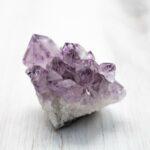Are you ready to embark on a journey through the fascinating world of compounds? Today, we delve into the realm of aluminum chloride, unearthing its hidden secrets and uncovering intriguing facts that will leave you in awe. Brace yourself for a captivating exploration of this remarkable compound, as we shine a light on its lesser-explored facets. Get ready to be amazed and curious, as we reveal the most interesting facts about aluminum chloride.

Interesting Facts about Aluminum Chloride
Aluminum chloride, a compound with a captivating array of properties, offers a wealth of interesting facts that shed light on its intricate nature. From its low melting and boiling point to its vital role as an industrial catalyst, let’s dive into the lesser-explored facets of this remarkable compound.
1. Aluminum chloride has a low melting and boiling point. Its melting point stands at a relatively low 192.6 °C, making it susceptible to transformation with mild temperatures. These characteristics contribute to its versatile applications and allow for easy handling in various processes.
2. The compound finds extensive use in the production of aluminum metal and the chemical industry at large. Serving as an essential component, aluminum chloride aids in the production of aluminum metal by facilitating key reactions. Additionally, its utility extends to other areas of the chemical industry, where it plays a crucial role in numerous processes.
3. Aluminum chloride exhibits intriguing reversibility, transitioning from a polymer to a monomer at mild temperatures. This unique property enables it to adapt to different environmental conditions and participate in a variety of chemical reactions. Its reversible nature contributes to its versatility as a catalyst, making it desirable in industrial settings.
4. It serves as a potent Lewis acid, capable of accepting a pair of electrons and forming new covalent bonds. This attribute allows aluminum chloride to partake in a diverse range of chemical reactions, making it highly valuable in various industries. Its Lewis acid properties contribute to its efficacy as a catalyst, enabling the synthesis of important compounds.
5. Aluminum chloride is a corrosive solid that remains non-explosive and non-flammable. This makes it relatively safe for handling and usage in controlled environments. However, caution is still necessary due to its corrosive nature.
6. When aluminum chloride comes into contact with water, it reacts vigorously. This reaction generates heat and produces hydrogen chloride gas, necessitating careful handling and control to prevent any undesired consequences.
7. It boasts a molecular weight of 133.341 g/mol (anhydrous) and a density of 2.48 g/cm³ (anhydrous). These physical properties provide insights into its composition and characteristics, further deepening our understanding of this intriguing compound.
8. Aluminum chloride is manufactured by the reaction of aluminum metal with either chlorine or hydrogen chloride. This synthesis process allows for the controlled production of aluminum chloride, ensuring its availability for various industrial applications.
9. Beyond its industrial usage, aluminum chloride also finds its way into deodorants and antiperspirants. Its ability to control auxiliary sweating makes it a valuable ingredient in personal care products, contributing to our everyday well-being.
10. Furthermore, aluminum chloride is utilized in therapies aimed at treating auxiliary sweating. Its unique properties help regulate sweat production, providing relief for those facing issues with excessive perspiration.
In summary, aluminum chloride presents a captivating amalgamation of properties, from its low melting and boiling point to its essential role as an industrial catalyst. Through further exploration and analysis of these intriguing facts, we can uncover even more fascinating insights about this compound.
“Uncovering the lesser-known facts about aluminum chloride illuminates its multifaceted nature and opens the door to new possibilities in the world of chemistry.”
Aluminum is one of the most versatile metals in the world, and there are countless fascinating facts about this incredible element. Whether you’re an avid science enthusiast or simply curious about the world around you, discovering the wonders of aluminum will leave you in awe. Did you know that aluminum is the most abundant metal in the Earth’s crust? Or that it’s incredibly lightweight, making it a favorite choice for industries such as aerospace and transportation? If you’re interested in learning even more interesting facts about aluminum, click here to explore our comprehensive list of 5 facts about aluminum: 5 facts about aluminum. Get ready to be amazed by the remarkable properties and endless possibilities of this extraordinary metal!
Interesting Facts about Aluminum Chloride
Did you know that aluminum chloride has a wide range of uses? From industrial applications to medicinal properties, aluminum chloride is an incredibly versatile compound. Whether you are curious about its applications or intrigued by its properties, we have got you covered!
Let’s dive into some fascinating facts about aluminum chloride. When it comes to uses, aluminum chloride has been widely utilized in various industries. It plays a crucial role in industries such as pharmaceuticals, textiles, and water treatment. In the pharmaceutical industry, aluminum chloride is used to treat hyperhidrosis, a condition characterized by excessive sweating. Its properties help reduce sweat production and provide relief to those who suffer from this condition. To explore more about aluminum chloride’s uses, click here: aluminum chloride uses.
Moreover, aluminum chloride exhibits intriguing properties that make it an essential compound. It is known for its hygroscopic nature, meaning it has the ability to absorb moisture from the air. This property makes it highly effective in various applications, including as an antiperspirant and as a catalyst in organic synthesis. If you want to learn more about the properties of aluminum chloride and how they contribute to its widespread applications, click here: aluminum chloride properties.
Additionally, aluminum chloride’s applications go beyond industrial uses. Did you know that it also plays a crucial role in the field of water treatment? Its ability to coagulate and remove impurities from water makes it an invaluable compound in the purification process. To discover more about aluminum chloride’s applications, click here: aluminum chloride applications.
With its diverse uses and fascinating properties, aluminum chloride proves to be an intriguing compound worth exploring. Whether you are interested in its applications, properties, or both, be sure to click the links above to delve deeper into the world of aluminum chloride.
The Versatility of Aluminium in Environmental Chemistry
[youtube v=”lLWBE6w_oR4″]
Introduction
Aluminium, the most abundant metallic element in the earth’s crust, is extensively used in various industries due to its unique properties. In this article, we explore the uses of aluminium and why it is such a popular material in fields such as construction, transportation, and even environmental therapy.
The Many Applications of Aluminium
Aluminium’s abundance and relatively low extraction costs make it a widely used material. Its strength, combined with its ability to bend without cracking when alloyed with other metals like copper, makes it ideal for applications in the construction industry. Window frames, aeroplanes, and the superstructures of ships all benefit from its lightweight yet durable properties. Furthermore, aluminium’s conductivity makes it suitable for high voltage electrical transmission cables.
The Corrosion Resistance of Aluminium
One of the most remarkable traits of aluminium is its ability to resist corrosion. Unlike iron, which rusts when exposed to water and air, aluminium forms a thin, protective oxide layer on its surface. This layer prevents water and air from reaching the metal, effectively halting further corrosion. The corrosion resistance is further enhanced through processes like anodizing, where a durable oxide layer is formed on the surface.
“The secret of aluminium’s lack of corrosion lies in its tight oxide layer, preventing water and air from reaching the metal.”
Aluminium Chloride: A Versatile Compound
While aluminium itself has many uses, its compounds also play a significant role in various chemical applications. One such compound is aluminium chloride. This compound displays interesting properties, such as low melting and boiling points, and the ability to transition from a polymer to a monomer at mild temperatures.
“Aluminium chloride is a potent Lewis acid, capable of forming new covalent bonds by accepting a pair of electrons.”
Aluminium chloride is manufactured by reacting aluminium metal with chlorine or hydrogen chloride. It finds applications in the production of aluminium metal itself, as well as in the chemical industry. This compound is known for its corrosive nature, but it is non-explosive and non-flammable.
Aluminium Chloride in Everyday Life
Beyond its industrial applications, aluminium chloride also finds its way into everyday products. Deodorants and antiperspirants use aluminium chloride to control auxiliary sweating, making it a valuable ingredient in personal care products. Additionally, therapies for treating excessive perspiration often incorporate aluminium chloride.
“Aluminium chloride is widely used in deodorants and therapies for treating excessive perspiration.”
Conclusion
Aluminium’s versatility and unique properties make it an indispensable material in various industries. Its strength, low density, corrosion resistance, and conductivity contribute to its widespread use in construction, transportation, and even personal care. Understanding the uses and applications of aluminium allows us to appreciate its importance in our daily lives.
“From construction to personal care, aluminium continues to play a crucial role in shaping our world.”

FAQ
Q: What are the main uses of aluminum chloride?
A: Aluminum chloride is primarily used in the production of aluminium metal. However, it also finds applications in other areas of the chemical industry as an important catalyst.
Q: Is aluminum chloride a corrosive substance?
A: Yes, aluminum chloride is a corrosive solid. It is anhydrous, non-explosive, and non-flammable. Moreover, when it comes into contact with water, it reacts strongly.
Q: What is the molecular weight of aluminum chloride?
A: The molecular weight of aluminum chloride is 133.341 g/mol (anhydrous).
Q: How is aluminum chloride manufactured?
A: Aluminum chloride is manufactured by the reaction of aluminium metal with chlorine or hydrogen chloride.
Q: What is the significance of aluminum chloride as a Lewis acid and a monomer?
A: Aluminum chloride acts as a potent Lewis acid, capable of accepting a pair of electrons to form a new covalent bond. It can reversibly change from a polymer to a monomer at mild temperatures. A monomer, on the other hand, is a molecule that can join together with other molecules to form a polymer.
- Unlock 6000+ words beginning with he: A comprehensive analysis - April 20, 2025
- Mastering -al Words: A Complete Guide - April 20, 2025
- Master Scrabble: High-Scoring BAR Words Now - April 20, 2025
















